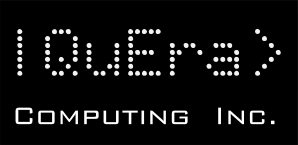QuEra Computing, a Boston-based quantum computer developer, is coming out of stealth mode today with $17 million in funding from Rakuten, Day One Ventures and Frontiers Capital. Angel investors Serguei Beloussov and Paul Maritz also joined in the round.
The startup, which has built a commercially accessible quantum device, will use the fresh capital to develop customized algorithms to leverage the power of its architecture on quantum optimization and quantum simulation.
Its quantum device will be accessible through the cloud next year, and QuEra is already working with several partners to develop and implement the customized algorithms for their applications, Alex Keesling, CEO of QuEra and co-inventor of QuEra’s technology, told TechCrunch. Among its existing customers, the company is working with Rakuten and multiple research scientists, Keesling added.
The QuEra team is building the world’s most powerful quantum computers to take on computational tasks that are currently deemed impossibly hard, Keesling said.
To date, state-of-the-art commercial quantum systems have included approximately 50 interacting quantum bits (qubits). At this scale, these instruments technically can provide a quantum computational advantage over classical computers, but they cannot begin to address practically significant problems. To tackle this challenge, QuEra is focused on making significant advances in two key areas: increasing the number of useful qubits and enhancing their programmability.
“QuEra aims to tackle critical but classically intractable problems for commercial applications in optimization, simulation, materials science, pharmaceuticals, finance and machine learning,” Keesling said.
QuEra has completed the construction of their first 256-qubit device, which will soon be accessible to customers. The device holds the promise to prove useful today — not years from now — by targeting applications in quantum optimization and quantum simulation. According to the company, this is QuEra’s first step toward addressing today’s “impossible problems” in materials, finance, chemistry, logistics, pharmaceuticals and more.
“This [QuEra’s] technology, developed over the past few years at Harvard and MIT, has already demonstrated that it has the ability to easily scale up the number of qubits without losing the crucial quantum mechanical properties,” Keesling said. “From an empty room in 2015 to controlling 51 qubits in 2017 to handling 256 qubits today, this technology has the potential to host multiple thousand qubits in a single processor within a few years, without needing major modifications to the architecture.”

Image Credits: QuEra Computing
QuEra’s hardware uses arrays of neutral atoms where hundreds of atoms are cooled and then arranged by laser fields in a small vacuum chamber. While the chamber’s glass walls are at room temperature, just millimeters away the atoms are laser-colled to a virtual standstill, reaching one-millionth of a degree Kelvin above absolute zero. That is over a million times colder than deep space and over a thousand times colder than the superconducting qubits by other industry peers like IBM and Google.
The company has already generated $11 million in revenue since its founding in 2019 while in stealth mode, from a combination of government grants and non-recurring engineering payments for the development of the machine, Keesling noted.
QuEra was co-founded in 2019 by pioneers in quantum computing and quantum science and technology at Harvard and MIT – Mikhail Lukin, Markus Grenier, Vladan Vuletic, Dirk Englund and Nathan Gemelke. QuEra’s team brings commercial expertise with co-founder John Pena, who previously co-founded quantum and pharmaceutical companies. The comprehensive combination of scientific minds and successful commercial experts positions QuEra to make quantum computers a reality in the near term, Keesling said.
“QuEra’s proprietary technology combined with its team of pioneers in quantum computing is unmatched,” said Takuya Kitagawa, Chief Data Officer at Rakuten who led Rakuten’s investment in QuEra. “QuEra will accelerate the quantum computing industry’s trajectory, making it a technology not of the future, but today.”
